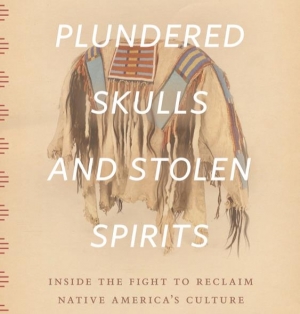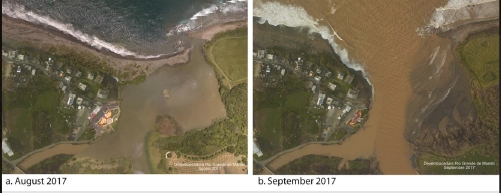FRIDAY SEMINAR: Plundered Skulls and Stolen Spirits: Why the Repatriation Wars Matter
Submitted by sutakahashi on December 4, 2018 - 12:34pm
Dr. Chip Colwell
Senior Curator of Anthropology, Denver Museum of Natural Science
Abstract:




Dr. Chip Colwell
Senior Curator of Anthropology, Denver Museum of Natural Science
Abstract:

BIO:
Abstract
Ethics in Archaeology Panel Discussion
With Drs. Willeke Wendrich, John Papadopoulos, Lothar Von Falkenhausen, and Steven Acabado
This workshop will focus on the importance of what is coming out of the ground and what happens to it afterwards. The following questions will be among the topics discussed:
Dr. Austin Nevin
CNR Researcher, Politecnico Milano
Studies of ancient Egyptian landscapes tend to focus on Upper Egypt, where the Nile valley is generally narrow and the low desert and the escarpment form a pervasive background. This focus is due in part to patterns of preservation of ancient sites, which disproportionately favor the Nile valley and desert regions. Yet from prehistoric times representations of landscapes that are integral to architectural forms and ritual settings show watery environments, which from the third millennium onward are often those of the delta.
The Meroitic kingdom is an ancient kingdom in Nubia, located and flourished at the confluences of the Blue Nile, White Nile and River Atbara, in Sudan. Researchers, with no convincing evidence, have argued that tribal movements within the Meroitic territory and the Axumite invasion from the east (Ethiopia) caused the collapse of the Meroitic state. Here I consider the nature of the political economy in order to provide a better understanding of the collapse and the regeneration of the Meroitic state.
Cultural heritage is our deep soul. It is the unique legacy for all societies worldwide, but at the same time our common responsibility. A value rewards humanity by providing the classical and universal principles. It provides the panhuman context of mutual understanding, respect, liberty and expression. The protection of cultural heritage is a matter for all and its recording and documentation a vital step towards preservation.
The recent publication of a book on theory (same title as this talk, Cambridge 2017), has its roots in a long and intense confrontation with the experience of field work, which began for me in Iraq and Turkey in the '60s: it was a very practical experience which elicited, by contrast, a strong interest in theory.
Space, as an expression of the architectural volumes expressed in Mesopotamian palatial architecture, can seem an abstract, distant concept, visible but not understood, and lacking interaction. These volumes, however, carry a deeper meaning: they conditioned and were affected by the daily life of the individuals who used these spaces.